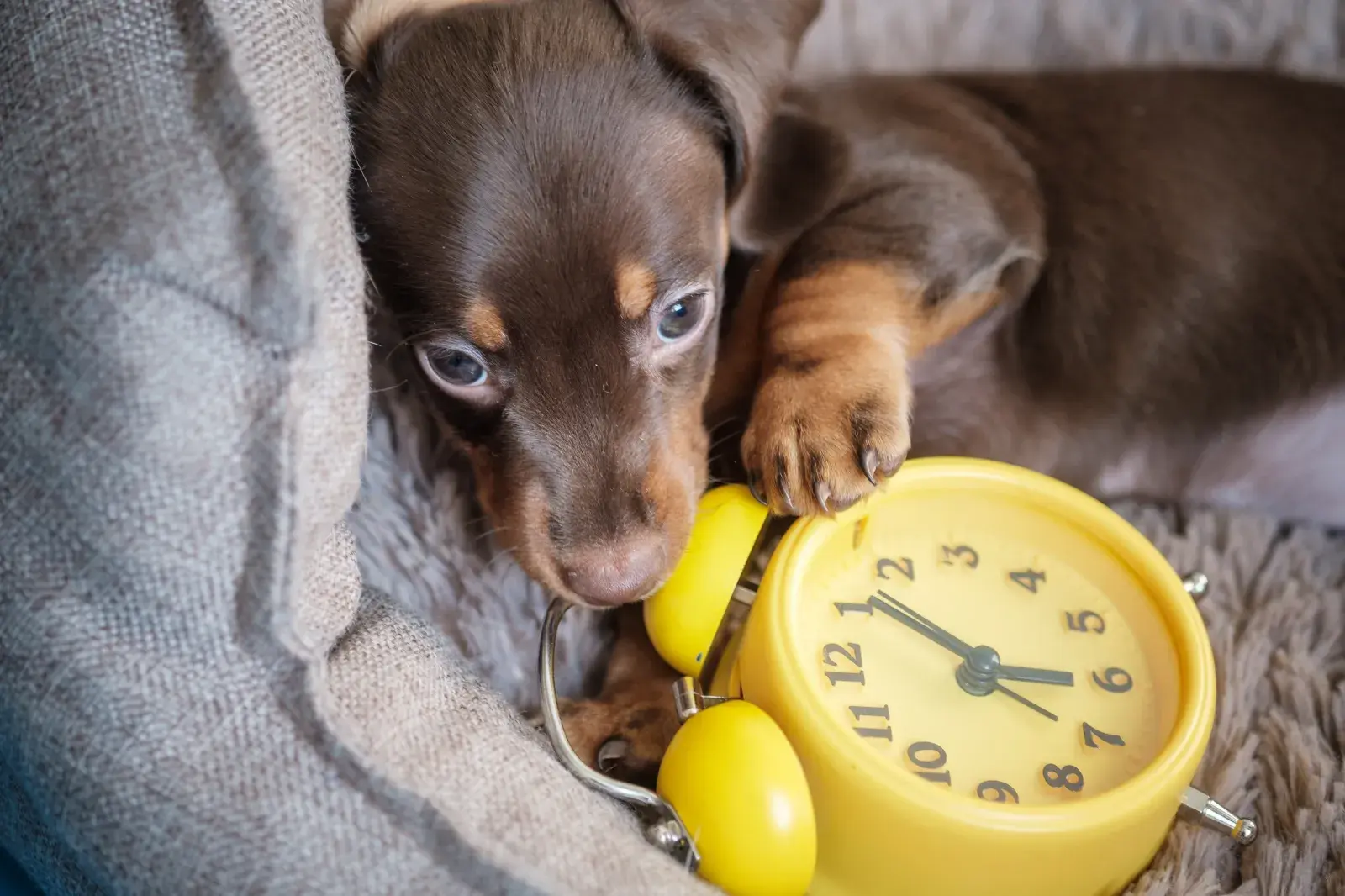Copyright newsweek

As daylight saving time ends giving us an extra hour of sleep in the morning, our pups might be negatively affected by this sudden change in their routine. On Sunday, November 2, clocks will be rolling back one hour at 2 a.m., making days shorter and darker for the entire winter season. They will then revert back next year on March 8, when daylight saving time will make its comeback. While dogs don’t understand time the same way we do, clocks changing do indeed affect them, maybe even more so than us. Amber Batteiger, veterinary nurse, PR ad communications manager at Embrace Pet Insurance, told Newsweek that because dogs are extremely reliant on routine, whether it’s feeding, walking, sleeping, playing, treat time, etc., a sudden shift in a routine can throw off their internal rhythm. A stock image shows a small dachshund holding a yellow clock. “This could lead to anxiety, restlessness, or even accidents if their usual bathroom breaks are delayed. They may begin begging for food or treats earlier than usual, or start following you around in anticipation of their regular walk, even though it’s not yet time according to the new schedule,” she said. To help ease the transition, she suggests gradually adjusting their schedule by 10 to 15 minutes over a few days leading up to the time change. “Keeping routines consistent and using natural light to help reset their internal clock can also make a big difference. It’s usually a subtle shift for us, although sometimes annoying or inconvenient, but for pets, it can feel like a major disruption,” she said. According to Dr. Eugene Lipov, CMO at Stella Mental Health, our dogs’ routines are often closely aligned with our own, and so when our routines are disrupted so are our pups’, and this can indeed cause distress. He told Newsweek that the abrupt shift in time during DST changes can disrupt their internal clocks, causing among other issues, disrupted sleep patterns, and increased anxiety, which often manifests as excessive barking, pacing, or destructive behavior. To help your during this time of the year, provide them with some extra comfort, including extra attention, more play, and lots of reassurance to help alleviate their anxiety. Do you have funny and adorable videos or pictures of your pet you want to share? Send them to life@newsweek.com with some details about your best friend and they could appear in our Pet of the Week lineup.



